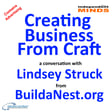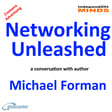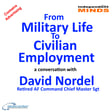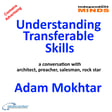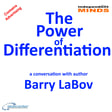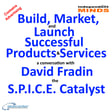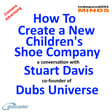
Preparing Education Leavers for Employment - a conversation with Erefa Coker founder of IMO Interns
Regardless of when someone leaves full time education, entering the world of employment is the real 21st Century rite of passage.
You can’t get a job without experience, and you can’t get experience without a job.
Only the biggest employers have the resources to provide training for people entering the workforce.
As a result, getting a foothold on the career ladder can feel like an impossible task, especially when you live in a country that does not provide the same sort of support as the UK.
Erefa Coker is based in Nigeria, a country that does not provide a structured transition from educatioon to employment.
Instead of seeing a problem Erefa saw an opportunity and set-up a company Imo Interns.
Imo Interns provides interns for smaller companies, and at the same time provides the support and training for those young interns that can be a challenge for smaller businesses to provide.
In this episode of The Independent Minds Erefa explains to host Michael Millward how Imo Interns works, the added value that the Nigerian-based interns have delivered for companies in Europe, North America and Australia.
The Independent Minds is made on Zencastr.
Zencastr is the all-in-one podcasting platform, on which you can create your podcast in one place and then distribute it to the major platforms like Spotify, Apple, and Google. It really does make creating content so easy.
If you would like to try podcasting using Zencastr visit zencastr.com/pricing and use our offer code ABECEDER.
Find out more about both Michael Millward and Erefa Coker at Abeceder.co.uk
Travel
Imo Interns is based in Lagos Nigeria.
If you would like to visit Nigeria the best place to make your travel arrangements is The Ultimate Travel Club, which is where you can access trade prices for flights, hotels and holidays. Use my offer code ABEC79 to receive a discount on your membership fee.
Three the network
If you are listening to The Independent Minds on your smart phone, you may like to know that Three has the UK’s Fastest 5G Network with Unlimited Data, so listening on Three means you can wave goodbye to buffering.
Visit Three for information about business and personal telecom solutions from Three, and the special offers available when you quote my referral code WPFNUQHU.
Being a Guest
If you would like to be a guest on The Independent Minds, please contact using the link at Abeceder.co.uk.
We recommend that potential guests take one of the podcasting guest training programmes available from Work Place Learning Centre.
We appreciate every like, download, and subscriber.
Thank you for listening.
.
